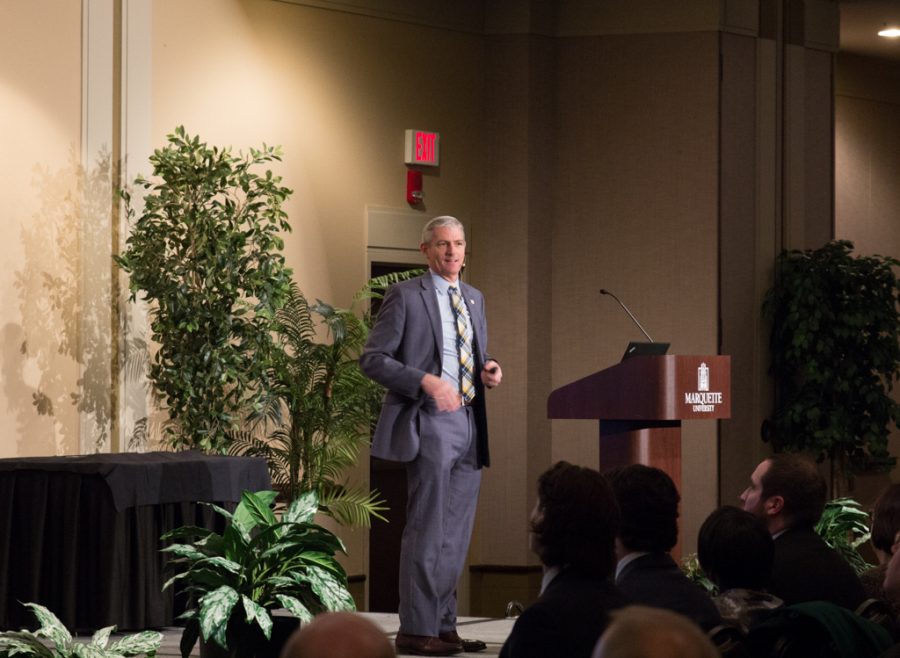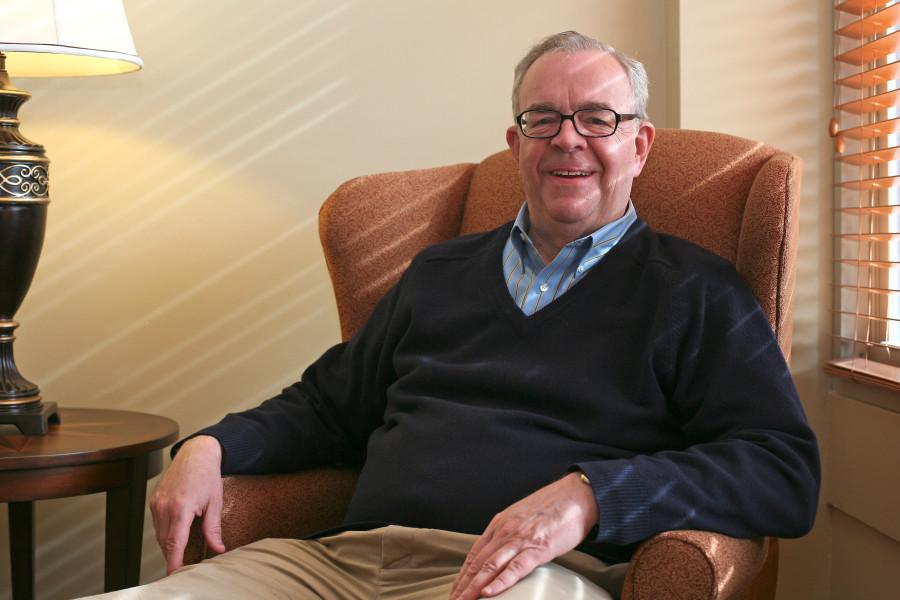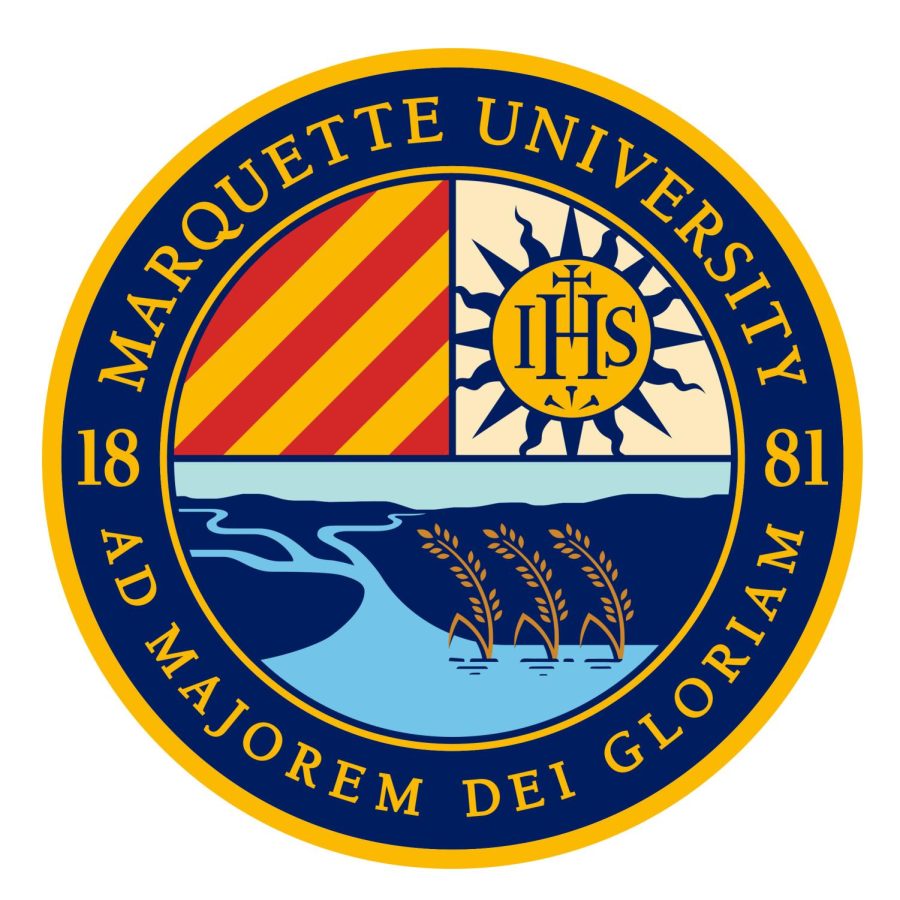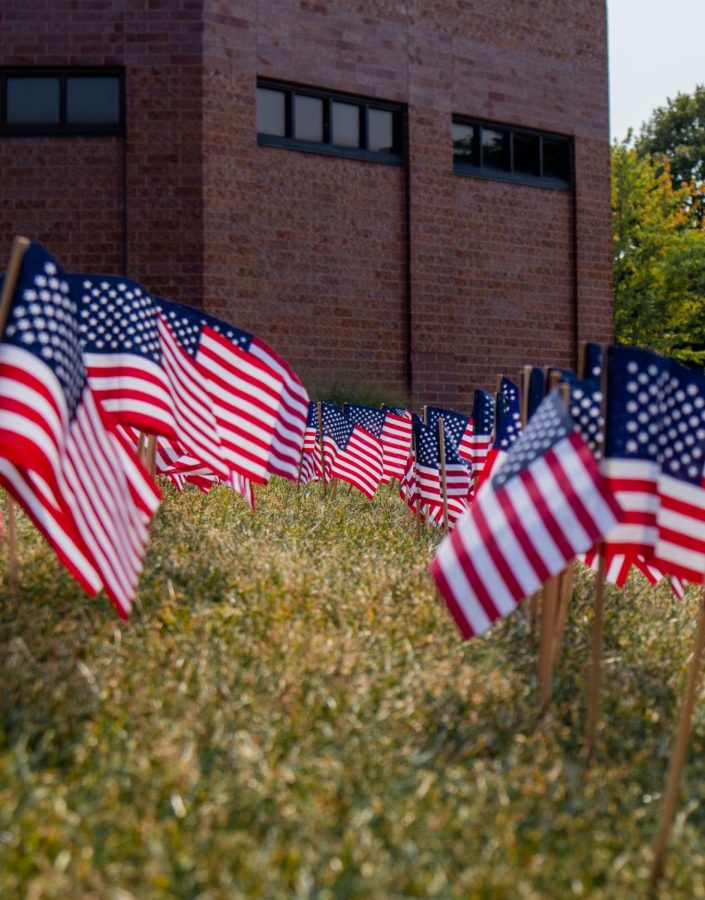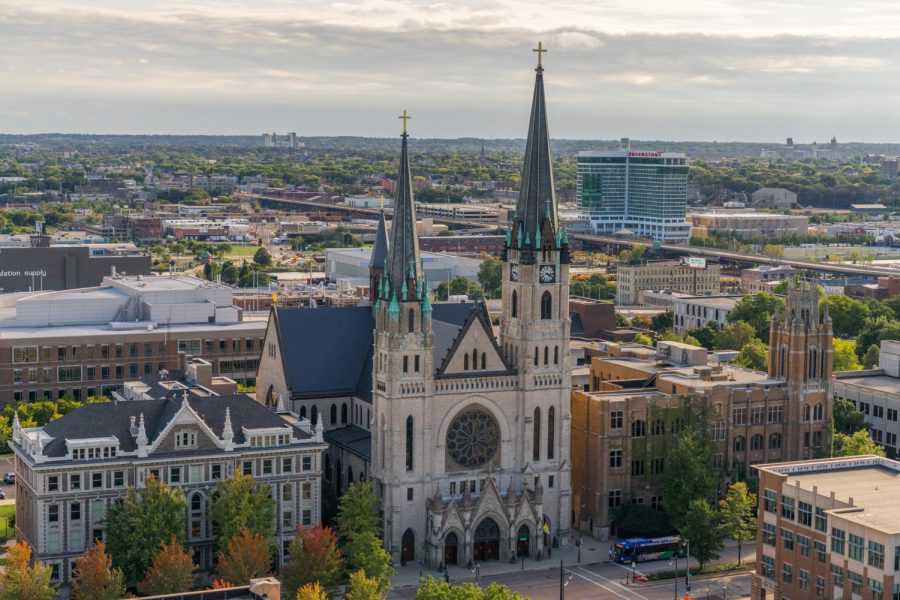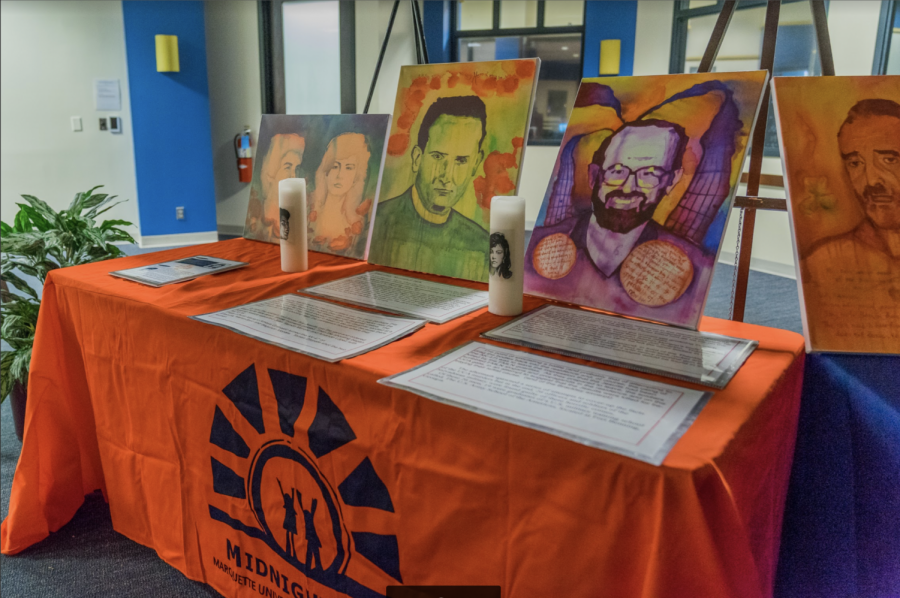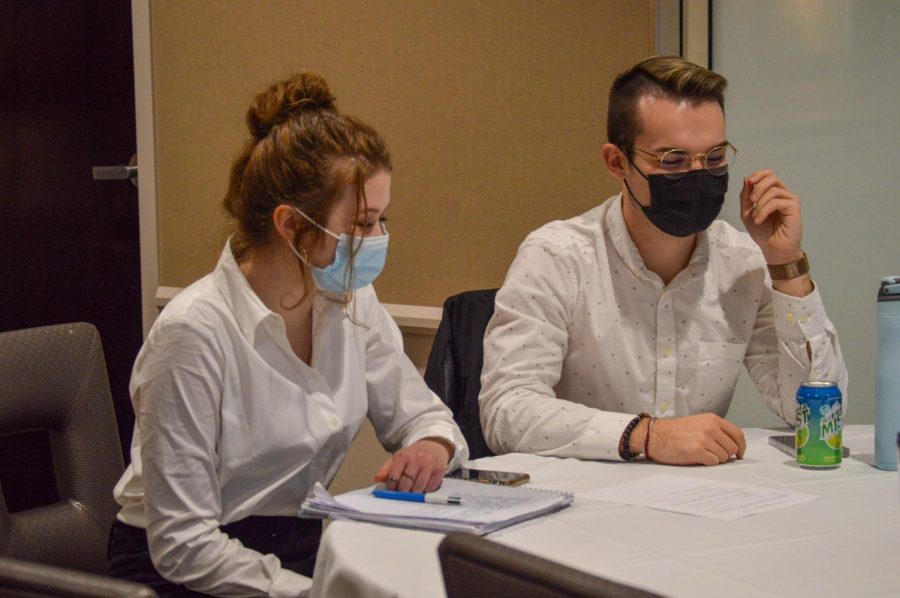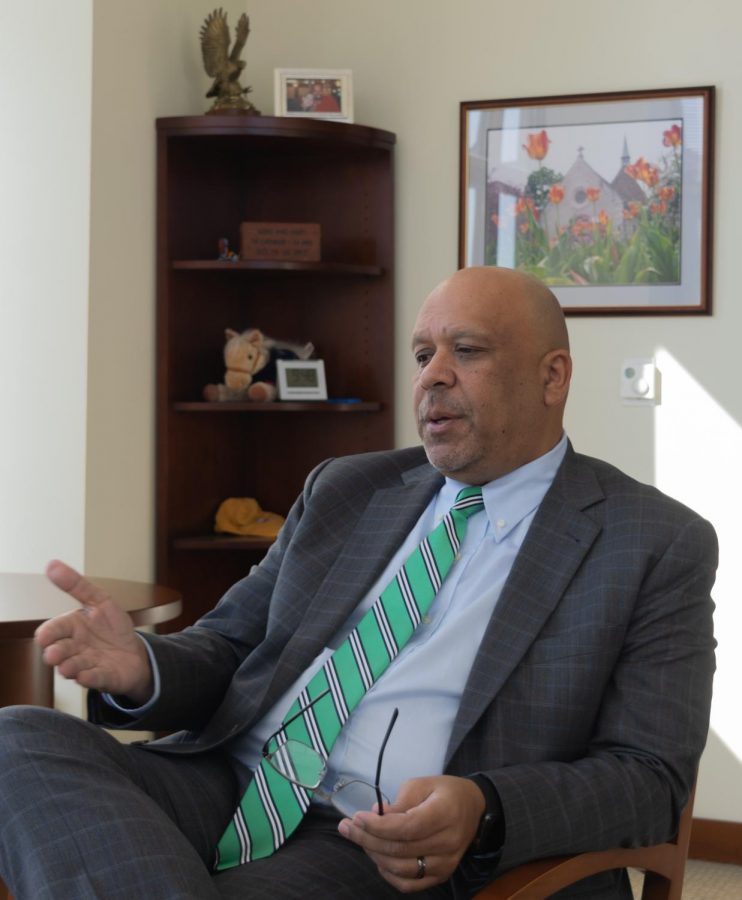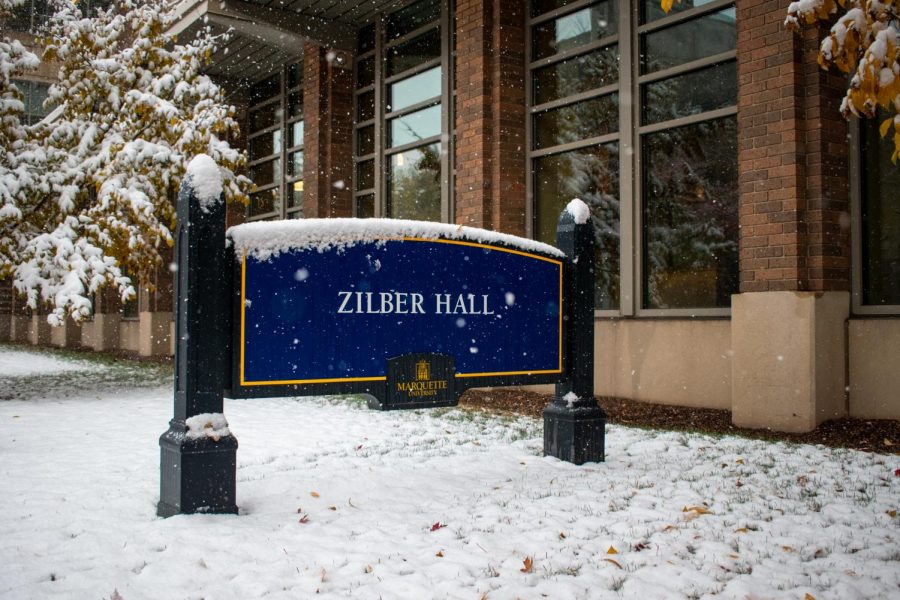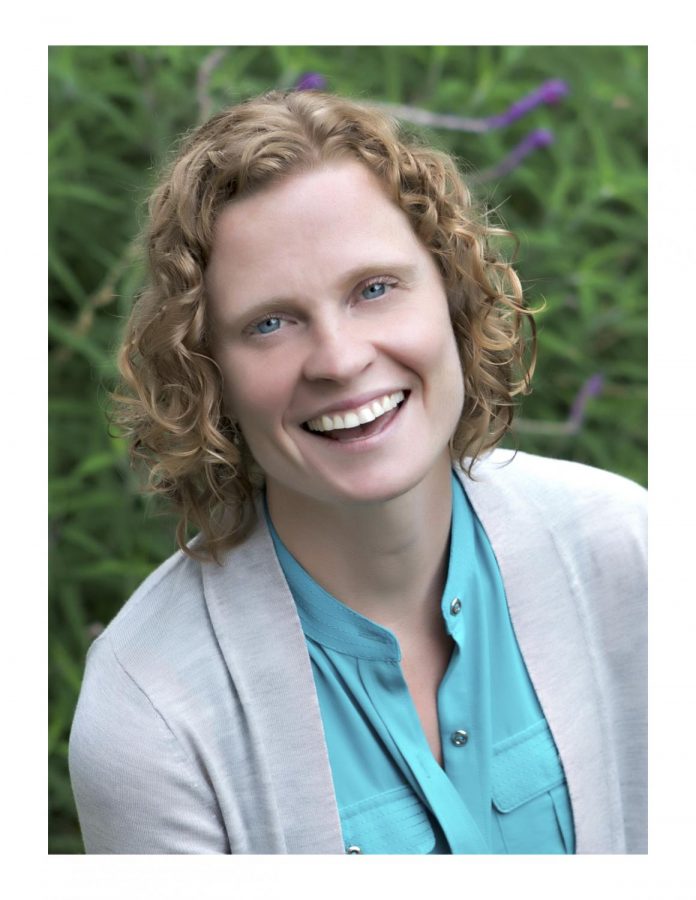
“I don’t care what I teach next year. I just want the opportunity to walk along the path of each one of my students during these important years of their life.”
These words, uttered by Greg Bonfiglio — then a 23-year-old scholastic in the late 1980s — would serve as his mission statement and the reason for his becoming a Jesuit priest and later, the president of Jesuit High School in Sacramento, Calif.
In the past, young people like Bonfiglio rushed to begin the process of becoming ordained as a Jesuit. Now, as the current Jesuits age, it has become more of a struggle to find their successors.
Although Jesuit universities throughout history have traditionally had Jesuits as presidents, there’s a good chance there will not be enough Jesuit priests to continue the legacy in years to come. Some universities have already appointed a layperson to the presidency.
Marquette has now been thrust into the role of seeking a successor for University President the Rev. Robert A. Wild, who announced his retirement in March, effective June 30, 2011 or whenever a successor takes office.
How Jesuit universities react to the change in leadership from priests to laypeople will alter how universities run and how they will stick to the core values and ideals on which they were founded.
But for now, Marquette’s goal is still to seek a Jesuit to replace Wild.
Swimming in ‘the pool’
Current university bylaws state a Jesuit is to be president, according to Marquette administrators Chris Miller, vice president of Student Affairs, and the Rev. James Flaherty, a member of the board of trustees and the search committee.
Listening sessions have been held this week for students, faculty and board of trustees members to voice their opinions on the qualities and characteristics the president should have, Miller said.
“It’s not a large pool, but there is a pool,” Miller said. “The board (of trustees) is very committed, and fully vetting this pool. It’s good for Marquette and our mission.”
Flaherty said the board would only have to visit the question of changing the university bylaws if the pool of Jesuits beyond the next president diminishes.
He said the pool is “not going to be hundreds,” but the largest size would be 10 to 15 candidates. Some will fall out without the proper skill set, he said.
“We’d begin to refine that and whittle that down as we create this presidential profile,” Flaherty said.
Flaherty added this is a “targeted search,” and when the board believes it has the right candidate, it will work to help the candidate come to Marquette.
The Rev. Douglas Leonhardt, associate vice president of the Office of Mission and Ministry, said he senses that Jesuits at other universities would be interested and qualified to be Marquette’s president.
“It’s not like there’s no pool of Jesuits available,” Leonhardt said.
Aging priests on staff
The Jesuit history dates to its 1534 founding, and the Jesuit priests are also getting up there in years — at least at Marquette.
Leonhardt’s colleagues are primarily over the age of 60. Of the 30 total Jesuits at Marquette (22 full-time, eight part-time), only three are age 49 or younger, Leonhardt said.
Frank Cox has been on both sides of the divide. Cox graduated from Marquette in 1964 and appreciates the presence of Jesuits in schools.
He worked first as a teaching assistant at Marquette in 1966-’67, then moved to Marquette University High School in 1968, later teaching at Brophy College Preparatory, an all-male Jesuit high school in Phoenix, until 2006.
Although he isn’t a Jesuit himself — instead happily married for more than 25 years — Cox witnessed the drop-off in Jesuits at both Marquette and Brophy.
“When I was at Marquette, the Jesuit priests had a major impact on my life,” Cox said. “But what does scare me is the lack of Jesuit teachers in the classroom.”
Although Marquette has had a drop-off in the number of priests, its number of applicants has skyrocketed. Applications were up 17 percent from 2008-’09 to 2009-’10.
Detroit Mercy, Georgetown break ranks
Overall, the transitions appear to be going smoothly at Jesuit schools that have non-Jesuit presidents. Currently, non-Jesuit presidents lead seven Jesuit colleges and universities, according to Stephanie Russell, vice president of Marquette’s Office of Mission and Ministry.
Russell said the first two Jesuit universities to depart from appointing the ordained as their presidents were the University of Detroit Mercy and Georgetown University. Detroit Mercy appointed Sister Maureen Fay as the first non-Jesuit president in 1990, and she served until her retirement in 2004, Russell said. In 2001, Georgetown University selected John “Jack” DeGioia as the first layperson to lead a Jesuit university, Russell said.
In 2003, DeGioia spearheaded Georgetown’s largest-ever fundraising initiative, The Third Century Campaign, which raised more than $1 billion in capital funds. The money went to improving the university’s law school, general campus construction, financial aid and faculty support, according to the Georgetown Office of the President’s Web site.
Georgetown was named as the 23rd best university in 2010 according to an annual U.S. News & World Report survey of more than 1,400 colleges and universities nationwide.
Flaherty, also the rector of Marquette’s Jesuit community and a philosophy professor, discussed Georgetown’s case.
“I think that Jesuit universities will be fine, and already are, under lay leadership,” Flaherty said. “I think the key is that there is serious commitment, on the part of lay leaders, to the Jesuit ideals and mission.”
What laypeople are doing to train themselves
Flaherty said leaders are already taking the steps to ensure they know what is going on in the Jesuit community.
“We’ve had two leaders here at MU that participated recently in a national program (The Lay Colleagues Formation Program) that introduces those unfamiliar with the Jesuit history, charism and mission to these important aspects of our schools,” Flaherty said.
Leonhardt said the Marquette staff is committed to utilizing the on-campus programs offered by the Office of Mission and Ministry. Russell said so long as the ability to train laypeople exists, then the ability exists to maintain every single value a Jesuit institution has to offer.
“I believe that our ability to fully form and include lay leaders in the mission of the university will, in fact, expand our curricular, academic and religious reach,” Russell said.
Cox astutely summed up the challenge ahead for Jesuit universities and high schools, and how they will best respond.
“There are more laypersons becoming presidents of Jesuit schools, as there are so few qualified Jesuits to do that job,” Cox said. “It takes a special person to do that job. It is a very difficult position.”

